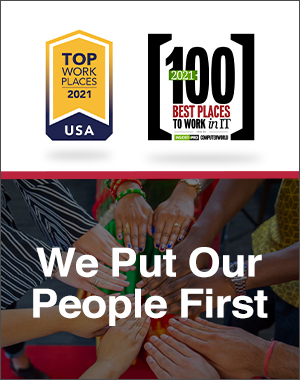Here is the answer: It lies not in what you do, but in why and how you do it.
So, what is the question?
The question is: In an industry where all providers offer the same services to the same group of people, how does a home healthcare agency differentiate itself so that those seeking partnerships in service provision will take notice?
In this age of changing reimbursement models, an entity looking for a partner in service provision is not only looking for the niche service or specific geographic coverage needed, but for a sense that the home health agency is the “right fit.” Does your company align with their values? Can you be trusted? Are you someone who will make the partnership stronger? This is where the why factor comes in to the selection and purchasing decision.
Your why factor is your agency’s ability to express your specific company’s philosophies, values and beliefs so that others can align themselves with those attributes. Your why factor is the basis and the essence of your brand.
Most people think of a brand as a company’s name, logo and colors, and while a brand does include those elements, it’s also much more. Brand development consists of exploring the philosophies, values and beliefs of an organization (the why factor) and creating a working brand platform that encapsulates a company’s mission/vision, positioning statement, promise to customers, strategic goals, personality, taglines and more. It also consists of creating a rich foundation of language to explain the value that a company brings to consumers’ lives and how it aligns with their needs, wants and beliefs. Finally, it guides the use of visuals that support the why and, thus, support the brand.
A potential partner in the healthcare delivery system will want to know your story, the reason you’re doing what you’re doing. They want to understand who you are as a company, what you believe and how those beliefs are carried out in the way that you provide services to a vulnerable population.
Trust is a key brand buzzword here, as there is a vast amount of trust involved in selecting a business with which to align and to share information and collaborate on service provision. Your brand, or your why, is what you use to build trust. Trust is built by establishing a relationship with those you seek as partners. If you don’t build strong relationships with those potential partners, you won’t see many conversions to buying what you are selling. Your why is what helps build relationships.
An article from Moz.com, 4 Ways to Build Trust and Humanize Your Brand, illustrates this point clearly, noting that, “Conversions are a by-product of great relationships. Relationships built on empathy, transparency, and honesty are the ones that last and drive a lifetime of conversions.”
To reinforce, in marketing language, the why factor is a company’s brand, and — not surprisingly — most home health agencies have not developed a formalized brand. As reimbursement models change and larger entities are seeking partners to extend service lines and coverage, not having a formalized brand will hurt agencies who wish to be a part of the larger healthcare delivery system.
As the healthcare delivery system changes and evolves, the way home health agencies go to market is evolving. Building and strengthening your brand with a well-strategized and succinctly stated why factor will set your agency apart from the crowd. The advances in technology that allow someone searching for specific services to extend their business lines means that those who have explored and solidified their brand will win the contracts for partnerships, as those agencies will stand out from the crowd.
For more information, watch part three of the series, “Surviving and Thriving in a Changing Environment: Know Your Why and Play to It.”
# # #
Merrily Orsini, President/CEO of corecubed, is considered a thought leader in the home care and aging care industries and is involved in numerous organizations providing insight and advice. She is recognized nationally for her expertise in strategic marketing for aging related services, particularly home care and home health services. Orsini’s business ownership began with a geriatric care managed in-home care agency, a venture that garnered her the prestigious Ernst & Young Entrepreneur of the Year Award in 1996. She sold that business and founded corecubed in 1998, a digital marketing company that focuses on marketing aging care services using strategy, design, digital integration, branding and industry focused content. She is the past Chair of the Private Duty Homecare Association of America, and has served on the board of the National Association for Home Care and Hospice and the National Association of Geriatric Care Managers (now Aging Life Care Professionals).


